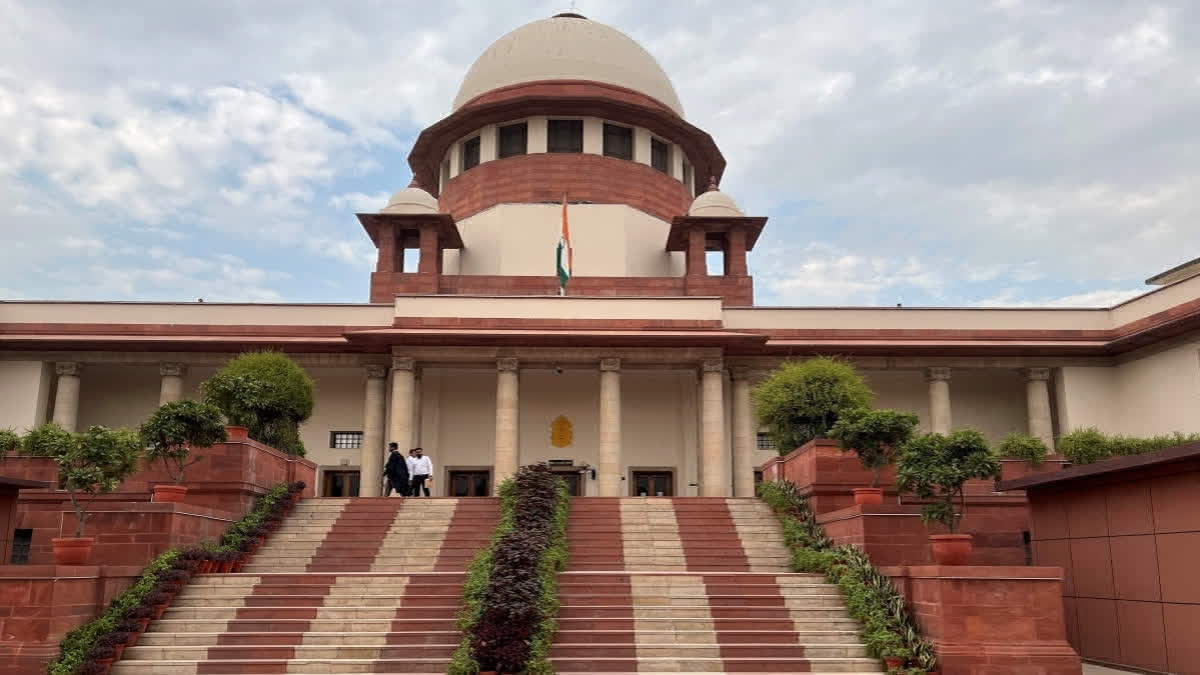New Delhi: In 2023, the Supreme Court delivered judgments that had wide-ranging ramifications, mattered for thousands, and also were important for keeping the faith of people alive in justice. In this year-end special, ETV Bharat lists 10 such judgments of the apex court, which have left a mark on 2023:
1. Article 370: A five-judge constitution bench of the Supreme Court led by Chief Justice of India DY Chandrachud upheld the Centre's 2019 decision to abrogate Article 370, which gave special status to the erstwhile state of Jammu and Kashmir. The five-judges unanimously held that Article 370 was a temporary provision, but asked the Centre to restore the statehood of Jammu and Kashmir and hold elections there by September 2024. The court also held constitutionally valid the decision to carve out Ladakh as the Union Territory. The Supreme Court also said para 2 of the Constitution (application to Jammu and Kashmir) Order, 2019 by which Article 370 was amended by amending Article 367 of the Constitution was ultra vires as interpretation clause cannot be used for amendment. "Paragraph 2 of CO 272 by which Article 370 was amended through Article 367 is ultra vires Article 370(1)(d) because it modifies Article 370, in effect, without following the procedure prescribed to modify Article 370. An interpretation clause cannot be used to bypass the procedure laid down for amendment," a bench led by Chief Justice of India D Y Chandrachud said.
2. Same-Sex Marriage: In October, a five-judge Constitution bench of Supreme Court, months after the marathon hearing of the pleas seeking legalisation of same-sex marriage, ruled with a 3:2 majority that it was up to the state to ensure what petitioners are seeking. The bench led by Chief Justice of India D Y Chandrachud refused to accord legal recognition to same-sex marriage, saying there was "no unqualified right" to marriage with the exception of those that are recognised by law. In a unanimous decision by the constitution bench said that there was no fundamental right to marry. CJI and Justice Sanjay Kishan Kaul, retired now, advocated for the recognition of same-sex partnerships, and also pushed for anti-discrimination laws to safeguard the rights of LGBTQIA+ individuals. Review petitions have been urging the apex court to reconsider its decision.
3. 26 Weeks Pregnancy: A three-judge Supreme Court bench led by CJI rejected the plea of a married woman, who has sought termination of her over 26-week pregnancy on account of her illness. The apex court said that the length of pregnancy has crossed 24 weeks, medical termination of pregnancy cannot be permitted. The top court said that there is no immediate threat to the mother and this is not a case of foetal abnormality.
4. Rahul Gandhi MP Status: In August, the Supreme Court, in a big relief to Congress leader Rahul Gandhi, stayed his conviction in a defamation case over his Modi surname remark. Gandhi had told the apex court that he would not tender any apology for his remarks as to why all thieves had Modi surname, and urged that his conviction should be stayed pending appeal, which would enable him to participate in the ongoing sittings of the Lok Sabha. The apex court had said: "No doubt that the alleged utterances by the appellant are not in good taste. A person in public life is expected to exercise a degree of restraint while making public speeches. However, as has been observed by this Court while accepting the affidavit of the appellant herein in aforementioned contempt proceedings, the appellant herein ought to have been more careful while making the public speech”.
5. Maharashtra Politics: A five-judge bench of the Supreme Court held Maharashtra Governor's decision to then Chief Minister Uddhav Thackeray to face a floor test in the wake of the crisis in his party "unjustified". The court also drew distinctions between the powers of a political party and the legislative party saying that only a political party can appoint the Whip and the Leader of the Party in the House.
